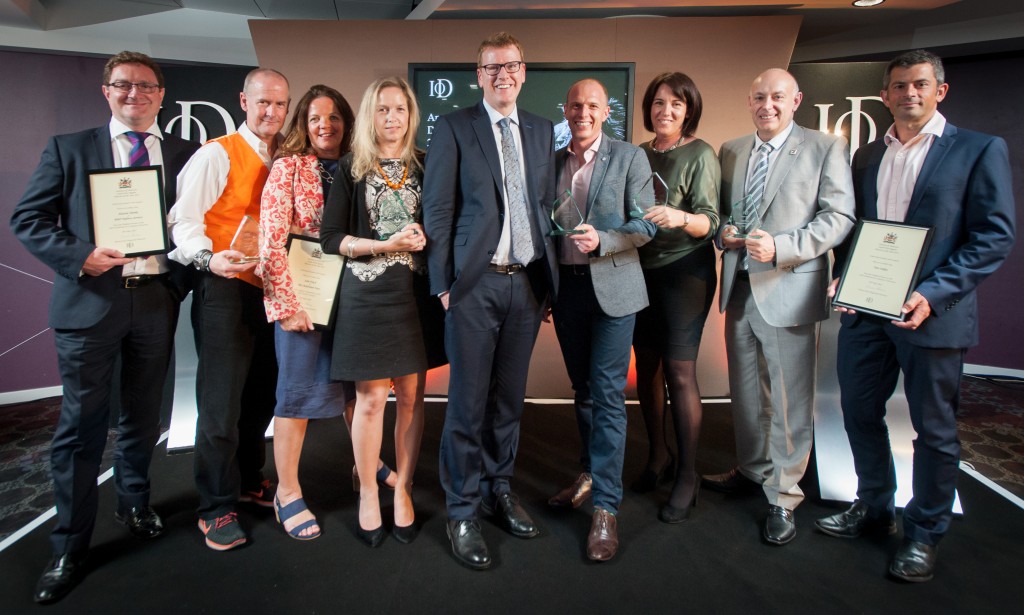The next government must strengthen the UK’s ability to help businesses start up and grow – including ditching the view that all immigration is bad – according to the director-general of the Institute of Directors.
Speaking on his first visit to the West of England yesterday, Stephen Martin, pictured, also called for clarity over the impact of Brexit on funding for growth companies, especially as many British venture capital providers receive funds from the European Investment Bank. 
Mr Martin, who took up his post in February, met regional business leaders as well as recently elected West of England Metro Mayor Tim Bowles in a series of meetings yesterday before attending the South West IoD’s annual dinner and Director of the Year Awards in Bristol last night.
His visit coincided with the publication of Office for National Statistics figures showing net migration to the UK was estimated to have fallen by 84,000 last year to 248,000 as workers from EU countries returned home ahead of Brexit.
He said an inability to be able to recruit internationally would hold back the region’s fast-growing digital sector and called on politicians to abandon the view that lowering immigration would, by itself, benefit Britain.
“Yes, we need the right kind of immigration but just repeating the argument that immigration is bad and puts extra costs on the NHS and infrastructure is wrong,” he said.
“We are competing in a global economy and we need to attract the best and brightest people to come and work here. You can’t do that by putting an arbitrary figure on it that immigration must only be in the tens of thousands.”
He said with the tech sector growing at twice the pace of the rest of the economy, there were 500,000 technical jobs unfilled in England alone last year – around 45,000 across the South West.
“In this light, it’s clear that short-term momentum in new industries will rely on access to skilled foreign labour over the next few years.
“As a case in point, we know that 18% of those working in the UK digital sector are foreign born, with one third of those people coming from EU countries.
“Even more importantly, foreign-born workers accounted for nearly half of the growth in employment in the UK digital industries between 2009 and 2015.
“Political parties of all stripes have promised to champion the cutting-edge sectors of the future. But in the short term, they will simply be unable to compete without access to high-level technical skills from abroad.
“More home-grown talent – which has long been hailed as the answer to high migrant numbers – is quite simply a long-term solution to a question that demands an immediate response.”
The second key issue for businesses looking to scale-up – as it is for many directors – was investment.
“On the face of it, the landscape for accessing finance in the UK is strong. Interest rates continue to sit at record low levels and there are an increasing number of new routes for accessing finance,” he told the audience at the South West IoD Awards at Ashton Gate.
“By recent estimates, the volume of alternative finance flowing through the UK is now four times higher than the rest of continental Europe combined. This fact should be a cause for celebration for start-ups and young companies.
“That said, some uncertainty will inevitably persist around investment, and potential scale-ups will be concerned about a drop in confidence last year amongst venture capital investors looking to get a piece of companies in emerging sectors like fintech.
“So we think that the challenge for the government over the next few years – particularly with the uncertainty surrounding the Brexit negotiations – will be to ensure that the UK remains a top destination for venture capital.
“This country is a net importer of venture capital, which is currently one of the most important sources of finance available to rapidly scaling companies.
“It is a funding stream that will be challenged by the Brexit process, not least because British venture capital funds receive enormous amounts of funding from the European Investment Fund.
“We are calling on the next government to be clear on whether future collaboration with this fund will be an early objective in the negotiations. If it is not, UK businesses will want them to make up the shortfall elsewhere.”
Belfast-born Mr Martin became head of the IoD after running major Scunthorpe-based construction group Clugston. But earlier in his career he spent four years between 2000 and 2004 working in the West of England with rail engineering group Amey responsible for its Great Western zone.
He said in returning to the region he was delighted to have the opportunity to see first-hand how many different parts of the business community collaborated with government support schemes.
The IoD, through its professional development courses and other resources, continued to make sure that British directors were the best qualified and most informed in the world, he said.
“And this will give us a key advantage as we leave the EU and compete in an increasingly crowded global race for talent, investment and innovation.
“From what I’ve seen today, the South West is better prepared to take on these challenges than almost any other region.”
South West IoD Award winners were:
- Director of the Year: David Gilroy, director of Conscious Solutions, the Bristol-based leading provider of digital marketing services to law firms,
- Young Director: Simon Brown, managing director and owner of Bristol-based research and development tax credit consultancy ForrestBrown,
- International Director: Merle Hall, managing director of Bristol-based Kinneir Dufort, which specialises in product, packaging and service design for companies around the world, including Bosch, Coca-Cola and Thales,
- Third Sector: Louise Mitchell, CEO of the Bristol Music Trust, created in 2011 by Bristol City Council to manage the city’s iconic Colston Hall music venue and take a regional overview of music promotion and formal and non-formal music education,
- Corporate and Social Responsibility: Andrew Scott, managing director of Weston-super-Mare-based Ascot Group, which takes in Purplex Marketing, Insight Data, a specialist provider of B2B marketing data, and Business Leader magazine.
Pictured: The winners at last night’s South West IoD Director of the Year Awards with Stephen Martin, centre




















